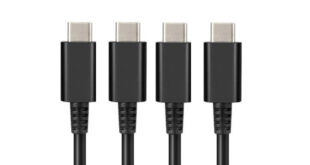Nintendo has demonstrated that launching games on its eShop platform might be easier than you think, with no parity clause and the newly added ability to work remotely.
Speaking at the Italian Game Developers Summit today, the platform holder’s Ed Valiente clarified some of the perceived stumbling blocks that developers might think are against them.
Firstly, the platform holder has no parity clause – something that rival Microsoft has received criticism for.
“There is no exclusivity or parity clause,” said Valiente. “We understand that small teams can’t work on multiple platforms at once. If you want to release on other platforms first, we’re happy for you to bring it to the platform when you’re ready.
“Of course, we’d like it on ours at the same time but it’s not a dealbreaker.”
He also emphasised that developers can run sales and promotions on their titles whenever they want – pointing to a number of indies that have already done so – and that developers can set the release date and price of their games themselves.
“That’s different from some other platforms in the past, where you had to wait for a slot and you’re told when it’s coming out,” he said. “We leave that up to you.
“There’s no concept approval, either. People often think ‘Nintendo’s not going to like this so they won’t let us release it’. But if you want to release your game on our platform and it gets a rating by PEGI or USK, you can do that.”
One of the policies that has changed in the last year is allowing developers to work from home. Previously, Nintendo preferred devs to have a registered office but in an age of remote working and one-man studios, this isn’t always practical.
Said Valiente: “If you have a lockable space where you can keep your dev kit locked, you can actually work from home. That also means you can work remotely, so if you’ve got a coder in one city, an artist in another city, a sound designer in another country, you can get approved as a team.
“By signing up with us you can release in Europe and America. If you want to release in Japan, you have to have an office in Japan, because you have to provide customer service in Japanese. Or you can go through local publishers there – there are three or four that will take Western games over to the Japanese eShop.”
He also added that there are no fees for certification or patching. The only cost to developers is the purchase of dev kits.

 MCV/DEVELOP News, events, research and jobs from the games industry
MCV/DEVELOP News, events, research and jobs from the games industry



